STRUCTURED EVENTS
by Keeler Cox

1. Write-a-thon
1.1. A write-a-thon is a 1-3 day marathon of contributing content to municipal information systems. During a write-a-thon participants write and format copy for municipal and community websites. Two specific types of sites for which write-a-thons were first created are Answers and LocalWiki. Answers is a simple search box for finding answers to questions most frequently asked on a municipal web site or 311 system. LocalWiki is a wiki written about a place by the people in that place. Both technologies are great ways to engage people who are proficient at writing and using a computer for business purposes.
2. Skill Share
2.1. A skill share is a lecture or a workshop where attendees learn a new skill from an expert practitioner. Skill shares are “how to” instruction. One example of a skill share is “how to deploy a content management system” for a community league or civic organization. Often programmers skill share, too, as in “how to make maps with DataCouch.” Organize skill shares if you have civic hackers and leaders who need help implementing a known pattern. Skill share is about teaching and learning.
3. Salon
3.1. A salon is an evening event for hosting one or more special guests with an audience. A salon doesn’t have a set format but typically involves a lecture or panel followed by questions for the guest(s). Invited guests might be experts in a field, an author, a group of public officials or the like. Salon is about sharing enlightenment.
4. App-a-thon
4.1. App-a-thon is a 1-3 day marathon for mobilizing around the deployment of open source, civic software. During an app-a-thon participants engage in any stage of deployment appropriate for the local project: planning, deployment, maintenance, or upgrade. App-a-thons are also a good time to work on marketing materials and getting the word out about your app.
5. Brigade Meetup
5.1. A Brigade Meetup is a meeting of local civic tech enthusiasts. Brigade Meetups use multiple other event formats, including Hack Night, Skill Share, Focus Group and Salon. Brigade Meetups are usually held weekly where there are local Brigade Captains. Brigade Meetups can be held anywhere; your house, the public library, a co-working space, or a favorite watering hole. Meetup is about connecting face-to-face.
6. Lightning Talks
6.1. Lightning talks are quick-paced, 5-minute presentations. One branded form of lightning talk that we like is called Ignite. During Ignites “presenters share their personal and professional passions, using 20 slides that auto-advance every 15 seconds for a total of just five minutes.” Anyone can host a lightning talk. If you want to call your event an Ignite you should contact [email protected]. Lightning talks are about sharing charged passions on a stage.
7. CityCamp
7.1. CityCamp is an “international unconference series and online community focused on innovation for municipal governments and community organizations.” An unconference is a conference where the tracks are determined by participants. We say “participants” and not “attendees” because participation is expected of everyone who shows up. Unconferences are forums for focusing a community or bringing different communities together to share and discuss opportunities and challenges. Let’s say you have a team of people from public works looking to leverage new technologies but unsure how: Host an unconference. Perhaps a community of civic hackers have identified problems or opportunities that gain the attention and support of city and community leaders. Host an unconference. CityCamp is like version 2.0 of the public planning meeting.
8. Icon-a-thon
8.1. Icon-a-thon is a 1-3 day marathon of designing and sketching iconography for the public domain that can be used in open source, civic applications. During icon-a-thon participants work on a pre-determined set of concepts by brainstorming and sketching designs. At the end of the icon-a-thon finished designs are scheduled for production, when sketches are turned into high resolution graphics and published to the web.
9. Hack Night
9.1. A hack night is when a local civic tech community comes together in the evening for a few hours to hack on one or more active projects. Brigades use hack nights during Brigade Meetups.
10. Civic Tech Expo
10.1. Civic Tech Expo is an exposition of open source, civic technology. Just like conference expos, Civic Tech Expo is a room filled of awesome stuff and an invitation to come check it out. Expo is about putting open source, civic tech on display.
11. Data-a-thon
11.1. Data-a-thon is a 1-3 day marathon of open data publishing. During a data-a-thon participants find, catalog, clean, reformat, publish and syndicate open government data sets. Usually data comes from a format that is not easily used by programmers or exists in an application database that has no programmatic interfaces. Data-a-thons are spent addressing these common issues by increasing the number of stars awarded according to the “5 Star deployment scheme for Open Data”. Data-a-thons are about making government data open source.
12. Hack-a-thon
12.1. A hack-a-thon is a 1-3 day marathon of coding. During a hack-a-thon participants write code for open source, civic applications. Keep in mind that the hackathon is a tactic, not a strategy. The strategy is continuous improvement. Products of a hackathon are usually beginnings. Some products are demonstrations of concepts. Some products are viable but need sustainability plans. Put effort in planning for these outcomes. Hack-a-thon is about connecting doers through code.
13. Focus Group
13.1. Focus groups are facilitated question and answers sessions with a small group around a table. Participants in a focus group can be sampled from large populations or participants might be targeted from relevant constituencies. Focus groups are about asking deep questions, listening to answers and articulating what is important to core stakeholders


